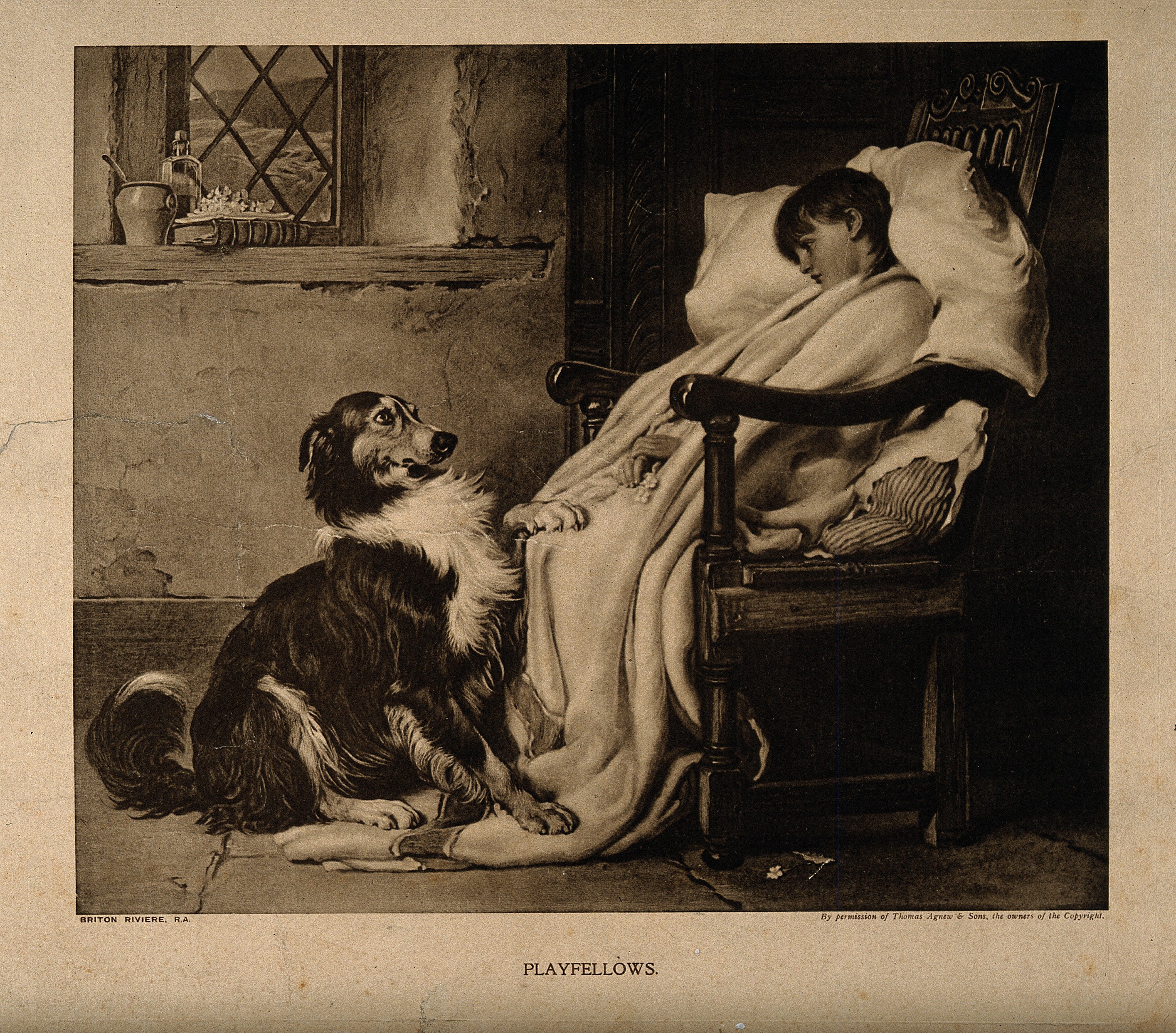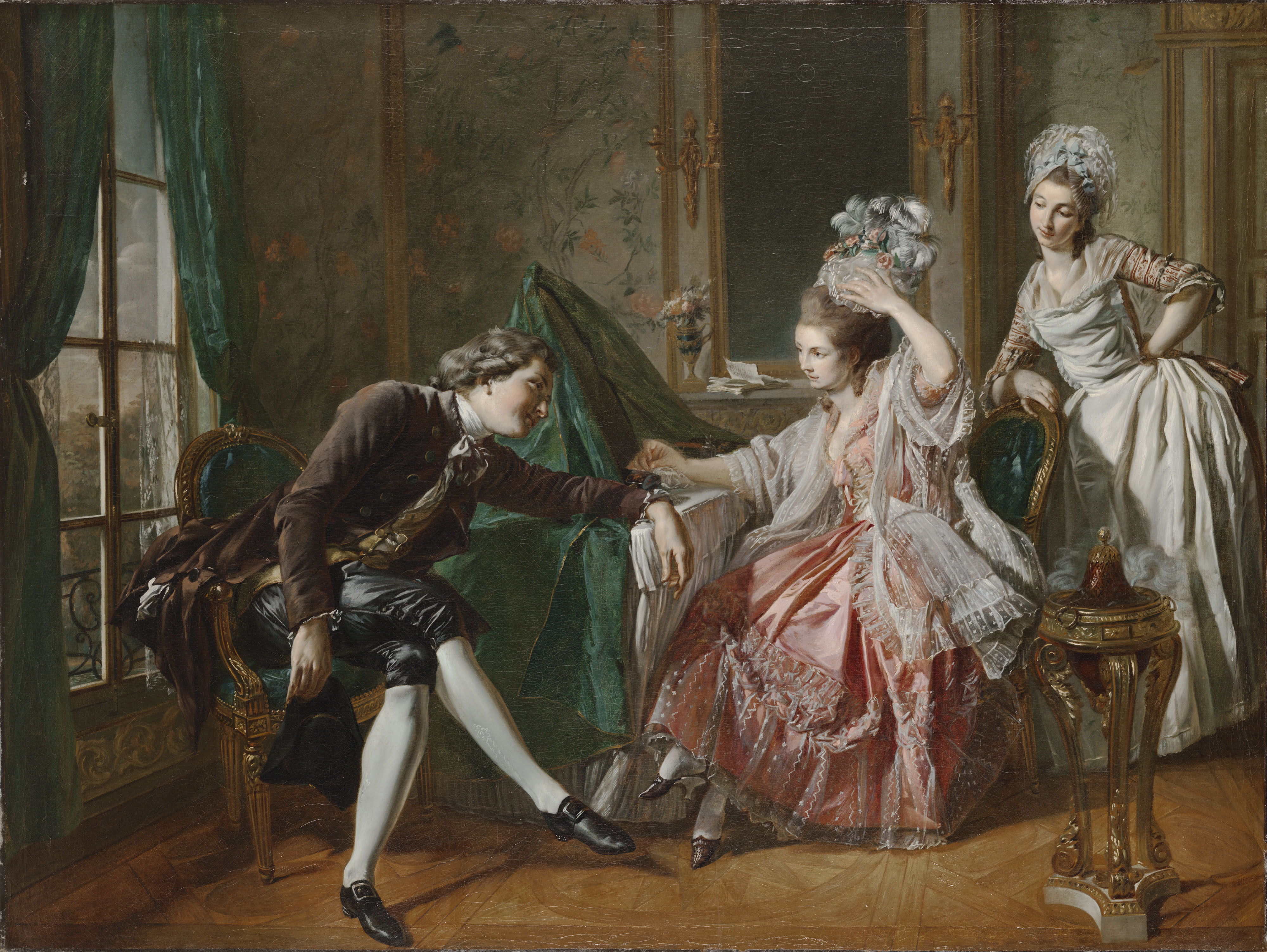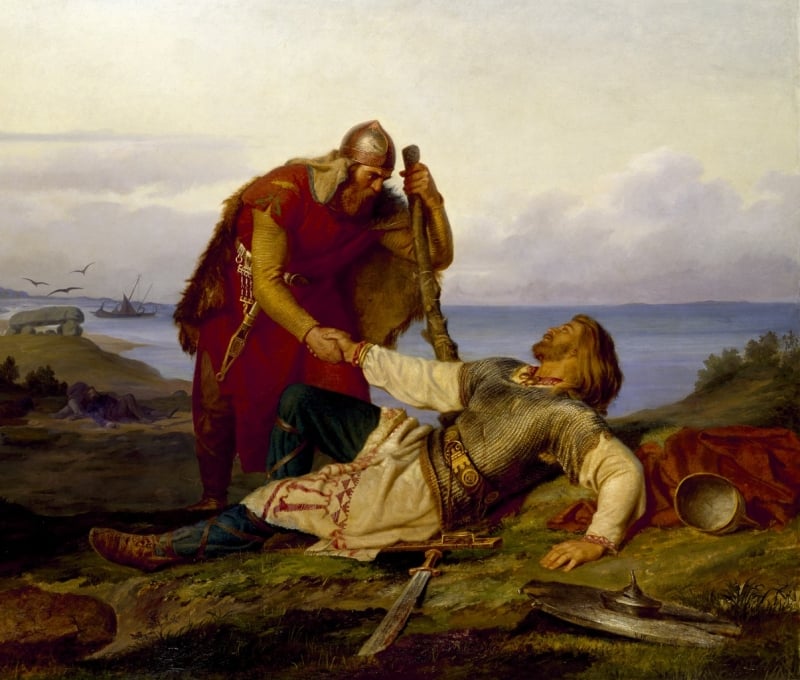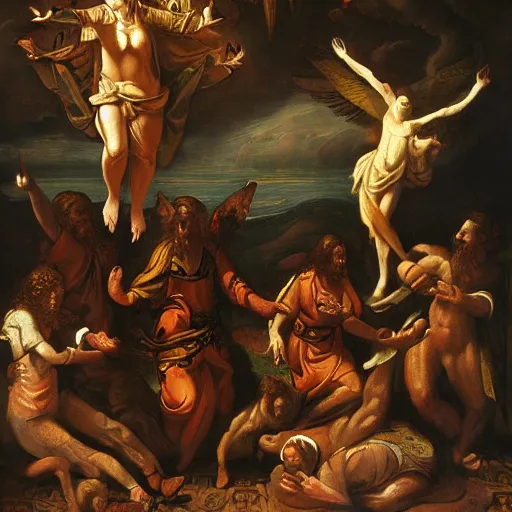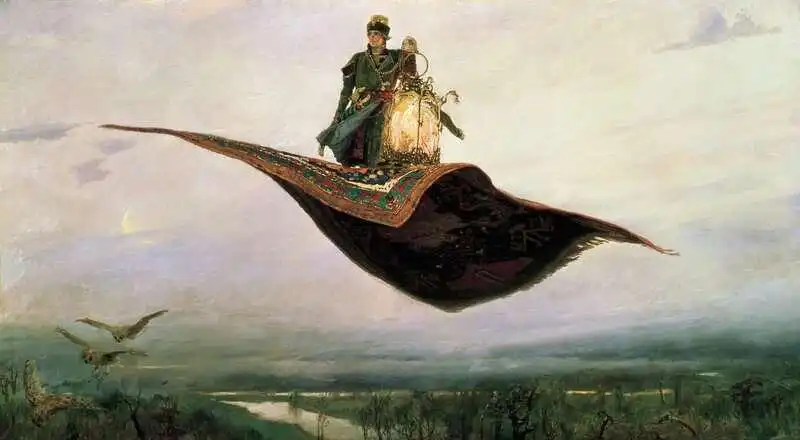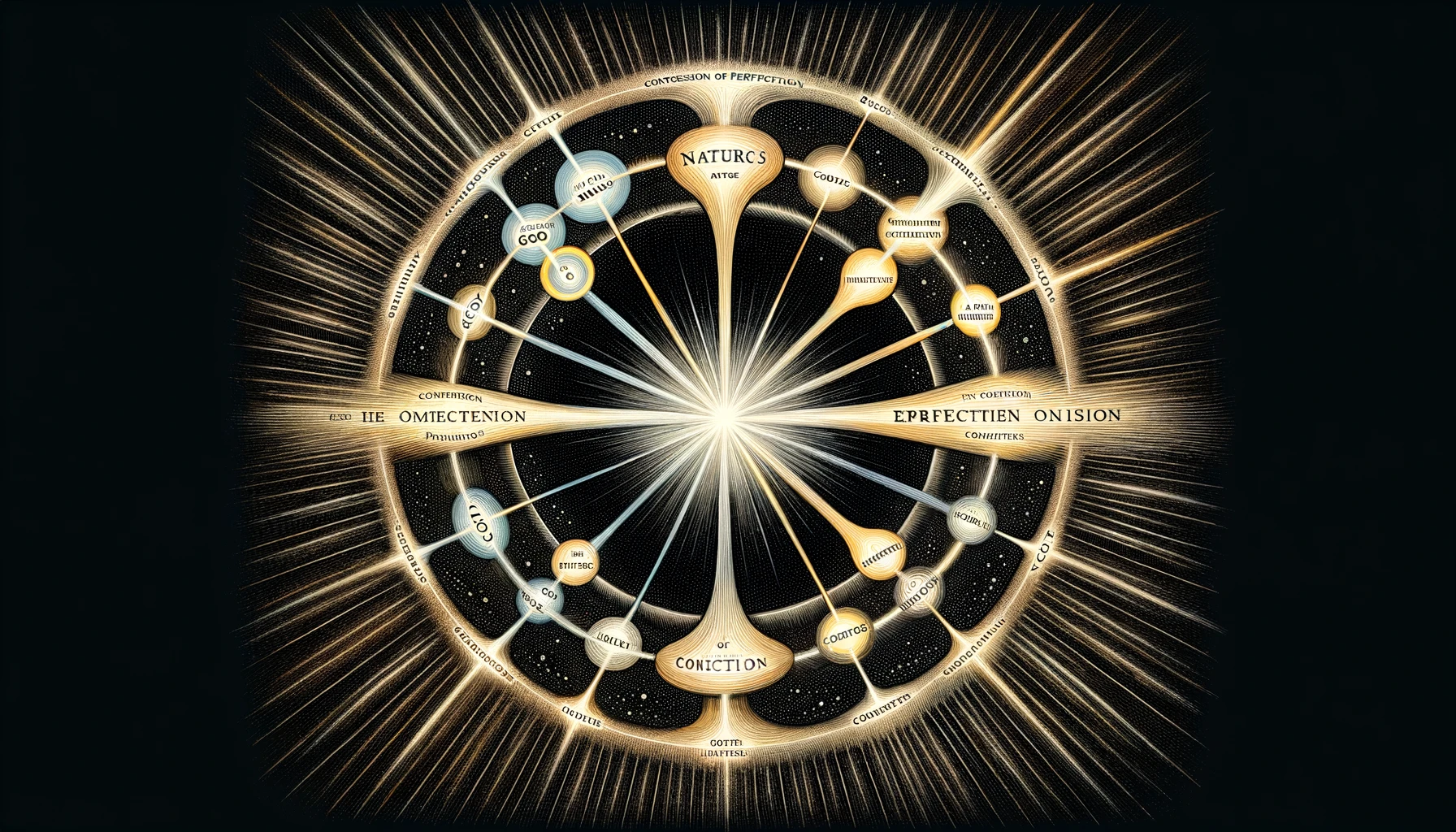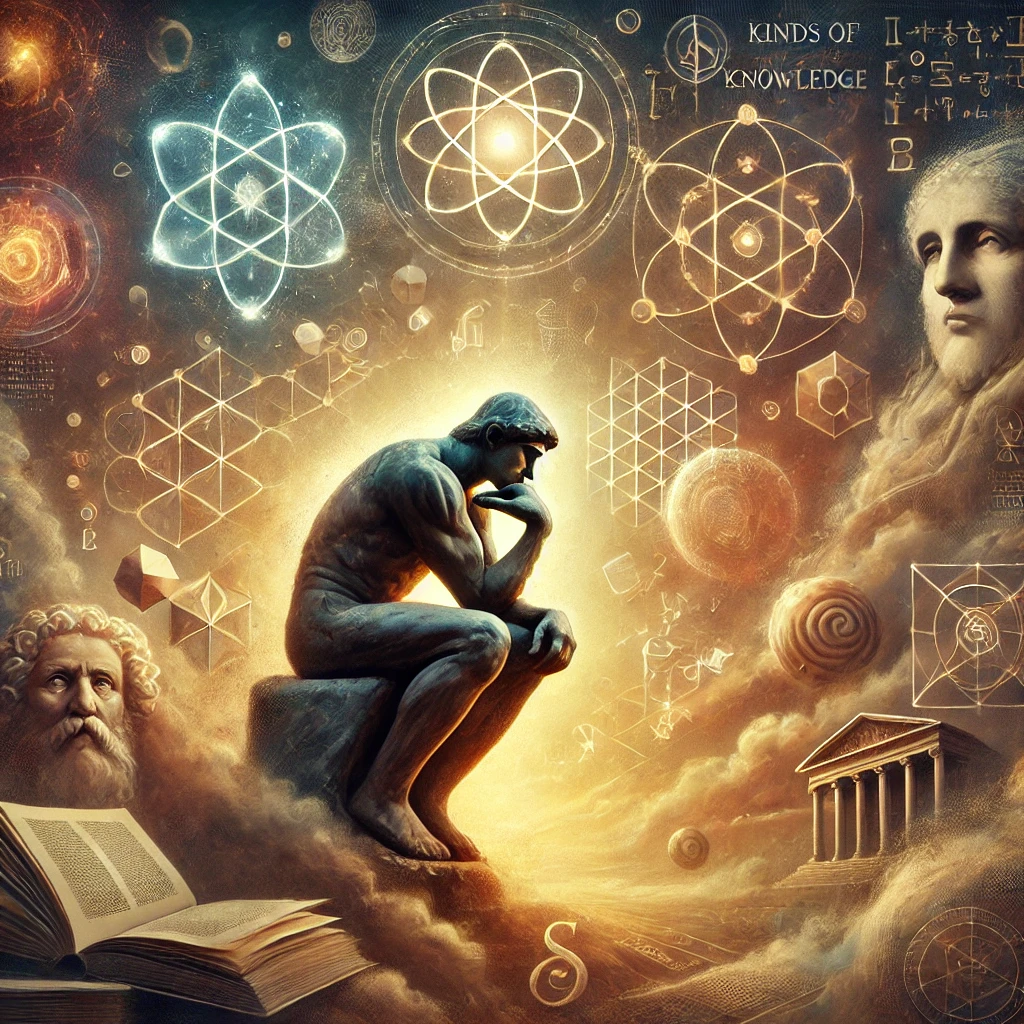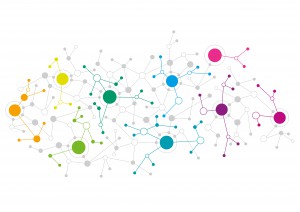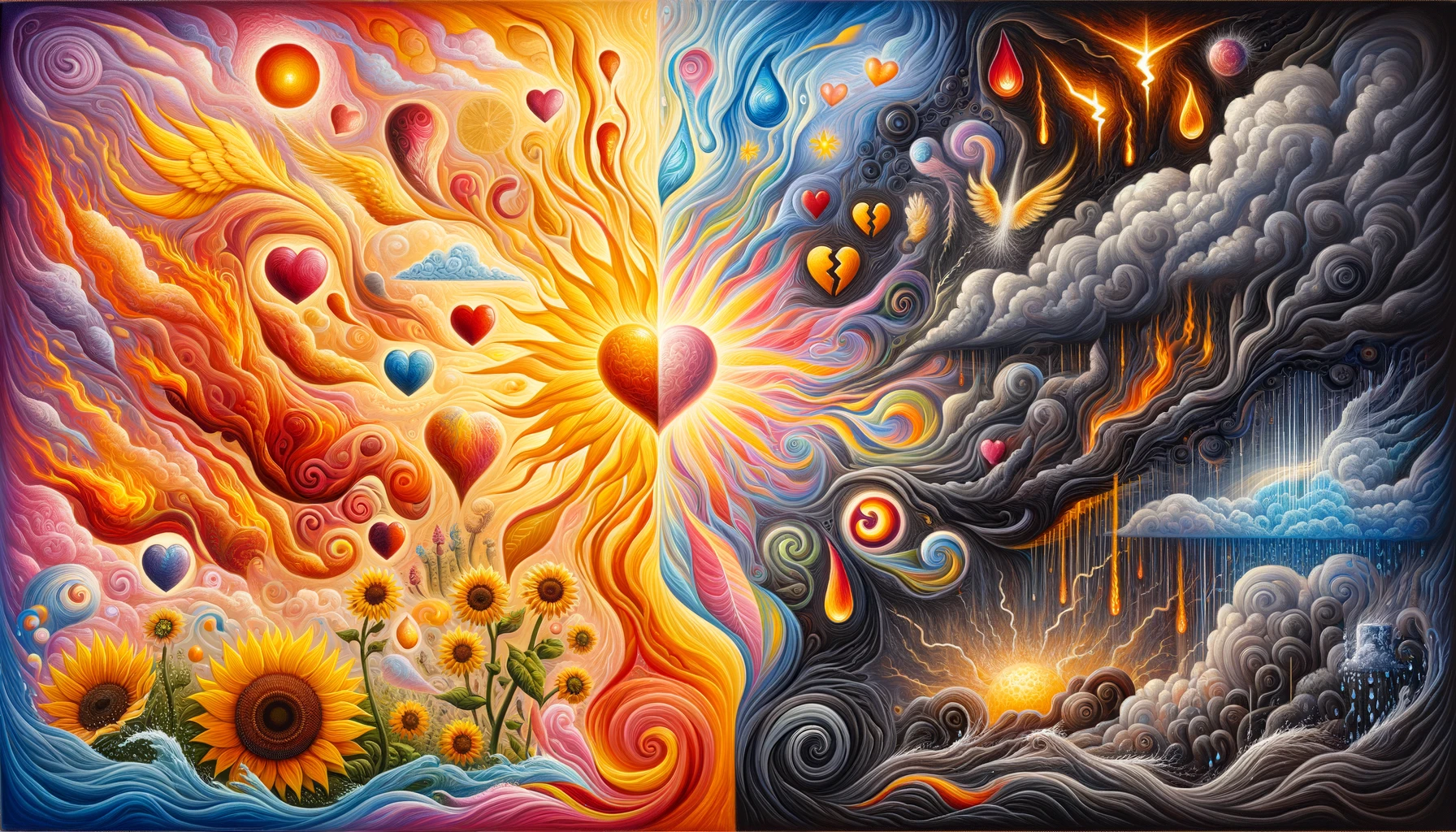
Requirements to know:
ON THE ORIGIN AND NATURE OF THE EMOTIONS
He who succeeds in hitting off the weakness of the human mind more eloquently or more acutely than his fellows, is looked upon as a seer.
Introduction and motivation
3PREF Most writers on the emotions and on human conduct seem to be treating rather of matters outside nature than of natural phenomena following nature's general laws. They appear to conceive man to be situated in nature as a kingdom within a kingdom: for they believe that he disturbs rather than follows nature's order, that he has absolute control over his actions, and that he is determined solely by himself.
The sense of free will leads to the idea of being separated from the rest of the nature and assume ourselves contingent.
They attribute human infirmities and fickleness, not to the power of nature in general, but to some mysterious flaw in the nature of man, which accordingly they bemoan, deride, despise, or, as usually happens, abuse.
Why should I want to know?
Human mind is not perfect, there are errors because of it's complex contingent nature which we explained in the mind; Anger, disappointment, pride, love, shape these just don't happen by itself in a mysterious way, There are causes that makes them happen, just like how causes make things happen in real world. Our mind also works by cause and effect, and we already talked about it that as long as there is cause and effect, it's nature's rules sit in between and make it happen, in emotions page, we will see what these rules are.
One of the reasons we would be surprised by seeing equations for emotions is that human knows itself contingent from nature, in a way that our mind has not been made by nature and it's different from animals, because mind is connected to the soul and this soul is what makes us special and enables us do what we want with it's miseries free-will nature. But so far, we know that we are not exceptional from nature, we are part of it.
Desire and free-will
In the mind page and others we talked about how the world works by a rational determinism and how we don't have free-will. Now with not having free-will, and being aware of such a phenomena, what can we do? The answer is understanding, knowing of the true causes that push us toward specific actions that doesn't make sense with logic and solely following desire.
Desire is part of nature, desire is the main guide for animals and almost all the other living beings. In a way that what we wish to regard as desire we call will, meanwhile we are unaware of true causes that makes us to desire something. For example when we desire Revenge, we regard it as will, but we might be unaware of the true causes that makes the emotion Revenge happen.
Will and understanding are one and the same thing
So to have the will over actions which arise from emotions, we need to understand emotions to take control.
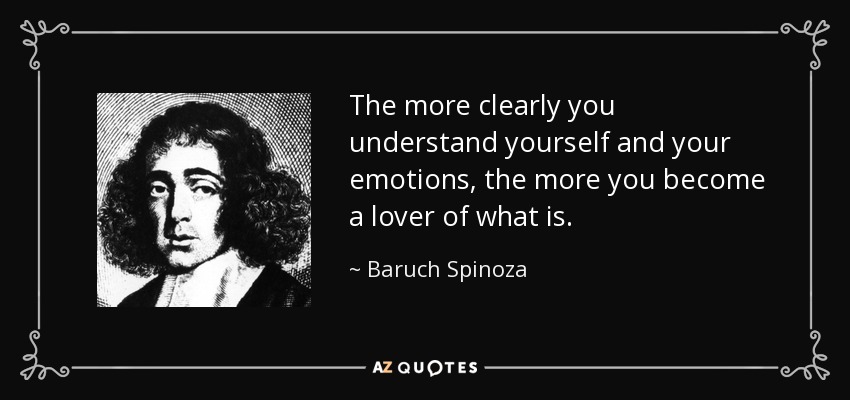
Preview on how emotions work
All emotions are based and deducted from pleasure, pain and desire, in a way similar to colors. With mixing enough of each, we get the specific emotion that arise.
3D1: By an adequate cause, I mean a cause through which its effect can be clearly and distinctly perceived. By an inadequate or partial cause, I mean a cause through which, by itself, its effect cannot be understood.
Adequate cause: something that it's effect is clear that what it's going to be, predictable. Inadequate cause: something that the effect isn't clear.
3D3: By emotion I mean the modifications of the body, whereby the active power of the said body is increased or diminished, aided or constrained, and also the ideas of such modifications.
- Emotion is a modification of body that conceive through our mind.
- Active power of body: Emotion can be negative or positive.
- Also the idea of such emotions means desire, which is a category of emotions.
Categories of Emotions
- Joy (positive)
- Sadness (negative)
- Desire (idea of emotion)
Types of Emotions
- Active - Pleasure:
- Emotion that results from self action.
- Example: feeling satisfied after workout.
- We will be the cause of emotion, as the power of activity increases.
- Passive - Pain:
- Emotion that results from external source which makes the mind to go to a passive state
- Example: The news of a plain crash with dead people.
- We will be part of the cause as it's external and we were not the cause, but part of it.
- Desire
- An appetite arise from pain or pleasure with mind being aware of it.
Affection or emotional cause to others
States of Mind
- Active
- As far as mind has adequate ideas and as far as it's power of activity increase.
- Passive
- As far as mind has inadequate ideas and as far as it's power of activity decrease.
Mind perfection
- Lesser perfection - Sadness
- Greater perfection - Joy
These passive states of transition explain to us the emotions of pleasure and pain.
3P1: Our mind is in certain cases active, and in certain cases passive. In so far as it has adequate ideas it is necessarily active, and in so far as it has inadequate ideas, it is necessarily passive.
3P1Corollary: Corollary.—Hence it follows that the mind is more or less liable to be acted upon, in proportion as it possesses inadequate ideas, and, contrariwise, is more or less active in proportion as it possesses adequate ideas.
The power of activity of mind is dependent on passive or active mode. The origin of adequate and inadequate ideas come from state of mind.
3P2: Body cannot determine mind to think, neither can mind determine body to motion or rest or any state different from these, if such there be.
Our mind does not control body as we assume. Body and mind are in a state of parrarelisem and they effect each other, but do not determine on each other what to do, but do it together as one united thing, but they can effect each other. Mind is at times more fit to think related to it's power of action(active), and sometimes less fit(passive). For example the rest time in bed, mind is in a passive state since the body language indicates, And straight behind the desk ready to think and active.
and body are one and the same thing, conceived first under the attribute of thought, secondly, under the attribute of extension
We think that our mind controls body, but we would be wondered if we actually understand how it works and see how little part our mind has on it. For example, you are able to move your hand, but you can't stop your heart from beating nether know how it works. I'll write more about the note of this proposition in the free-will page.
3P3: The activities of the mind arise solely from adequate ideas; the passive states of the mind depend solely on inadequate ideas.
3P4: Nothing can be destroyed, except by a cause external to itself.
3P5: Things are naturally contrary, that is, cannot exist in the same object, in so far as one is capable of destroying the other.
Like cold and heat, they influence(destroy) each other, they cannot be there at the same time, but engage and replace each other. The very same for our emotions, we categorize them in sadness and joy, you cannot have both together, but one influence the other. One will counteract or diminish the other, like cold and heat.
3P6: Everything, in so far as it is in itself, endeavours to persist in its own being.
Self-preservation natural drive, things persist in there own being to exist more. The fundamental of all nature is striving for existence. This is universal for all things, we know that nothing cannot happen from nothing, so a external cause has to force something on a thing, otherwise without a cause it persist in it's being, for humans it's the same, we also strive to be in the shape we are, and strive for pleasure, which we will dig after this.
3P10: An idea, which excludes the existence of our body, cannot be postulated in our mind, but is contrary thereto.
Any idea that excludes our body, is naturally inherently opposed to the nature of mind. The first primary layer of mind is the sense of actually existing modifications of body. Since body is the object of mind, any idea that include harming us will be in this object and it's the opposed of it.
3P12: The mind, as far as it can, endeavours to conceive those things, which increase or help the power of activity in the body.
We automatically look for things that increase the power of our activity, or pleasure/love feelings.
3P13: When the mind conceives things which diminish or hinder the body's power of activity, it endeavours, as far as possible, to remember things which exclude the existence of the first—named things.
Mind persist as much as possible to remember those things which hurt and feels pain and can lead to excluding of from existence, this is natural, otherwise we would survived.
Emotional Memory
3P14: If the mind has once been affected by two emotions at the same time, it will, whenever it is afterwards affected by one of these two, be also affected by the other.
Example.1: Let's say you have had a bad result of your test, which involved a process of doubt and feat, And whenever you feel doubt again, you would also be affected by fear, we would assume that the fear feeling is because of the results and consequences, but that's our logic trying to make sense of our of feelings, meanwhile the real cause is not what we think is.
Example.2: You have been listening to a specific song while feeling pleasure by other causes, next time with listening to the song, you would feel the same pleasure since mind remembered song with specific feeling in the moment.
3P15: Anything can, accidentally, be the cause of pleasure, pain, or desire.
3P15.Corollary: Simply from the fact that we have regarded a thing with the emotion of pleasure or pain, though that thing be not the efficient cause of the emotion, we can either love or hate it.
We can love or hate anything since good and bad are our preservation of things which form by affecting multiple causes which form the idea and memory of love or hate of a thing. The object itself might not be the cause of emotion, but the cause has formed in past experiences.
3P16: Simply from the fact that we conceive, that a given object has some point of resemblance with another object which is wont to affect the mind pleasurably or painfully, although the point of resemblance be not the efficient cause of the said emotions, we shall still regard the first—named object with love or hate.
- Resemblance = Similarity through pattern recognition.
Mind constantly look for similar patterns in current state with provisos patterns. If we recognize a similarity in a object with another object in the past, mind regards the the current object with the emotion from the similar object.
Example: You may find the same face pattern in a person with someone you knew before, and mind regards the new person with the same emotions as the similar new person, if we hate the first person, because of the similar patterns mind regard new person with same emotions.
In this example, the new person has not been the cause of our emotion, but the cause has been the underlying pattern recognition and emotions kept with that memory, which we might be unaware of this true cause.
3P17: If we conceive that a thing, which is wont to affect us painfully, has any point of resemblance with another thing which is wont to affect us with an equally strong emotion of pleasure, we shall hate the first—named thing, and at the same time we shall love it.
If there is a object which brings us pain, but the object is similar to another object that we love, we both love and hate it at the same time. This situation of love and hate (contrary emotions) at the same time is called Vacillation. It happens when an object is the cause of both emotions, directly or by similarity.
Imaginations impact
Ethics 3P18 : A man is as much affected pleasurably or painfully by the image of a thing past or future as by the image of a thing present.
If the imagined idea is referred to time past or future in a way that it involves us, body's emotional response to the image would be as present. Because the body's existence does not exclude. If you think of yourself having ice cream in an hour, body would already react to it as it has it now.
- Hope
- Passive pleasure from the outcome image of a thing in past or future which we are concerned in doubt
- Fear
- Passive pain from the outcome image of a thing which we are concerned in doubt
Now if we remove the doubt element from these emotions they become:
- Confident
- Hope without concerning doubt
- Despair - or Disappointment
- Fear without concerning doubt
We can see that doubt concerning the outcome, is a property of emotion, which changes the shape of the emotion and when we think of it in past or future, we get the same effect as present. In other words:
- Hope: pleasure in doubt
Confident: pleasure in certainty
- Fear: pain in doubt
- Despair: pain in certainty
---
Emotions underlying functionality
Preview
We said before in this page that things are contrary, and they cannot exist in the same object, in so far as one is capable of destroying the other, like cold and heat, now our emotions are also contrary as it categorizes in sadness and joy as - and +, which exist in mind as emotions.
- [-] = Pain feelings
- [+] = Pleasure feelings
- [S] = State towards the object
- This symbol is the force of emotion towards the object and will multiply to the indicator of emotion towards object
- [C] = Cause or idea of it
- [O] = Strength of feeling or output
- This is the output or result of emotion, which will multiply to it's indicator
Loved object
Ethics 3P19 : He who conceives that the object of his love is destroyed will feel pain; if he conceives that it is preserved he will feel pleasure.
- You have a car, you love it, you see it destroyed, you feel pain.
- [(+) (S)] * (C-) = [(O) (-)]
- You have a car, you love it, you see it preserved from destruction, you feel pleasure.
- [(+) (S)] * (C+) = [(O) (+)]
Hated object
Ethics 3P20 : He who conceives that the object of his hate is destroyed will also feel pleasure.
You have a enemy, you hate him, you see him destroyed, you feel pleasure.
Enemy = Object of hate -
Object of love and hate
Ethics 3P21 : He who conceives, that the object of his love is affected pleasurably or painfully, will himself be affected pleasurably or painfully; and the one or the other emotion will be greater or less in the lover according as it is greater or less in the thing loved.
- You have a car, you love it, you see it affected pleasurably(adoration of others) you feel pleasure.
- You would feel pleasure as much as you love your car.
- [(+) (S)] * (C+) = [(O) (+)]
- You have a car, you love it, you see it affected painfully(people hate it) you feel pain.
- You would feel pain as much as you love your car.
- [(+) (S)] * (C-) = [(O) (-)]
Car = Object of love
Adoration = Pleasure +
Hate = Pain -
Affection of external love or hate on loved object
Ethics 3P22 : If we conceive that anything pleasurably affects some object of our love, we shall be affected with love towards that thing. Contrariwise, if we conceive that it affects an object of our love painfully, we shall be affected with hatred towards it.
- You have a dog, you love your dog, someone gives a treat to your dog, you love that person.
- [(+) (S)] * (C+) = [(O) (+)]
- You have a dog, you love your dog, someone kicks your dog, you hate that person.
- [(+) (S)] * (C-) = [(O) (-)]
Dog = Object of love
Treat = Pleasure +
Kick = Pain -
Affection of external love or hate on object of hate
Ethics 3P23 : He who conceives, that an object of his hatred is painfully affected, will feel pleasure. Contrariwise, if he thinks that the said object is pleasurably affected, he will feel pain. Each of these emotions will be greater or less, according as its contrary is greater or less in the object of hatred.
- You have a enemy, you hate him, you see him affected painfully, you feel pleasure.
- You would feel pleasure as much as you hate your enemy.
- [(-) (S)] * (C-) = [(O) (+)]
- You have a enemy, you hate him, you see him affected pleasurably, you feel pain.
- You would feel pain as much as you hate your enemy.
- [(-) (S)] * (C+) = [(O) (-)]
Love and hate toward people by our object of hate
Ethics 3P24 : If we conceive that anyone pleasurably affects an object of our hate, we shall feel hatred towards him also. If we conceive that he painfully affects that said object, we shall feel love towards him.
- You hate Taylor swift, you see someone who likes her, you feel hatred towards them.
- [(-) (S)] * (C+) = [(O) (-)]
- You hate Taylor swift, you see someone who hates her, you feel love towards them.
- [(-) (S)] * (C-) = [(O) (+)]
Taylor swift = Object of hate
Note: As far as we rejoin to participate in another's pain, it's attributed to jealousy, which is hate. Or as far as we be sad for someone else's pleasure, it's attributed to envy/jealousy.
Struggle toward affirmation and negation
Ethics 3P25 : We endeavour to affirm, concerning ourselves, and concerning what we love, everything that we can conceive to affect pleasurably ourselves, or the loved object. Contrariwise, we endeavour to negative everything, which we conceive to affect painfully ourselves or the loved object.
- You have a dog, you love your dog, you would like to see your dog happy and healthy.
- [(+) (S)] * (C+) = [(O) (+)]
- You have a dog, you love your dog, you would not like to see your dog in pain or sick.
- [(+) (S)] * (C-) = [(O) (-)]
Ethics 3P26 : We endeavour to affirm, concerning that which we hate, everything which we conceive to affect it painfully; and, contrariwise, we endeavour to deny, concerning it, everything which we conceive to affect it pleasurably.
- You hate your enemy, you would like to confirm anything that would affect him painfully.
- [(-) (S)] * (C-) = [(O) (+)]
- You hate your enemy, you would like to deny anything that would affect him pleasurably.
- [(-) (S)] * (C+) = [(O) (-)]
Based on this, we strive to think too highly of ourselves and our loved objects. For example, we think of our own capabilities too high because we endeavour to affirm everything that would affect us pleasurably. This feeling of thinking too high of ourselves or loved object is called pride. A man might dream with open eyes, and think of himself with special abilities, thinking that he can accomplish anything he thinks of and accounting them as real since the imaginations effect as present. This will continue until evidence of the contrary is shown and exclude the idea of the dream, this event will make the person very angry because now there idea of pride in question is excluded in reality.
Pride = Pleasure springing from a man thinking too highly of himself that he caused pleasure in others
Over-esteem = Pleasure which arises from a man thinking too highly of another
Disdain = Pleasure which arises from thinking too little of a man
Sympathy or imitation of emotions or interpersonal emotions
Ethics 3P27 : By the very fact that we conceive a thing, which is like ourselves, and which we have not regarded with any emotion, to be affected with any emotion, we are ourselves affected with a like emotion.
If we conceive that a thing is like us(another person), if we have not regarded them with any emotion, we would effect with a like emotion as they are affected. This is called sympathy or imitation of emotions.
- Compassion/Pity = pain springing from the fact that we conceive a thing like ourselves to be affected with pain.
- Example: Your classmate died by car accident, you feel pain.
- Emulation = desire of anything, engendered in us by the fact that we conceive that others have the like desire.
- Example: All your classmates have a new phone, you would like to have one too.
Corollary 1: If we conceive that anyone, whom we have hitherto regarded with no emotion, pleasurably affects something similar to ourselves, we shall be affected with love towards him. If, on the other hand, we conceive that he painfully affects the same, we shall be affected with hatred towards him.
Example: Your president in which you have no judgment or feelings of, helps people like you, you would love him. On the other hand, if he hurts people like you, you would hate him.
Corollary 2: We cannot hate a thing which we pity, because its misery affects us painfully.
If we pity a thing, we cannot hate it, because it's misery affects us painfully, as a result we would feel his pain.
Corollary 3: We seek to free from misery, as far as we can, a thing which we pity.
If we pity a thing, we seek to help and free it from misery as far as we can, just like how we would treat with our own pain.
Benevolence = will for doing good for the thing which we pity, which is desire from compassion.
Ethics 3P28 : We endeavour to bring about whatsoever we conceive to conduce to pleasure; but we endeavour to remove or destroy whatsoever we conceive to be truly repugnant thereto, or to conduce to pain.
We want to bring pleasure and avoid pain.
Ethics 3P29 : We shall also endeavour to do whatsoever we conceive men to regard with pleasure, and contrariwise we shall shrink from doing that which we conceive men to shrink from.
Men = People who we did not regard with any emotion.
Since we see our own reflection in others, we would like to do things that others like and be part of them and avoid doing things that others hate and avoid as a group.
- Ambition = Desire for the approval of men which is desire from emulation.
- Kindliness = Act in ways to please other men, motivated by desire from compassion.
- Praise: Conceiving the action of another to gain our approval, which is desire from ambition.
- Blame: Conceiving the action of another to lose our approval, which is desire from ambition.
Ethics 3P30 : If anyone has done something which he conceives as affecting other men pleasurably, he will be affected by pleasure, accompanied by the idea of himself as cause; in other words, he will regard himself with pleasure. On the other hand, if he has done anything which he conceives as affecting others painfully, he will regard himself with pain.
If you have done something that you think would be the cause of pleasure for others, you regard self as the cause of pleasure and feel pleasure. Contrary, if you have done something that you think would be the cause of pain for others, you regard self as the cause of pain and feel pain.
- Honour = pleasure accompanied by the idea of an external cause, rooted in the idea of others praise.
- Shame = pain accompanied by the idea of an external cause, rooted in the idea of others blame.
- Self-complacency = idea of self as cause of pleasure cause by imagining others pleasure.
- Repentance = idea of self as cause of pain in others pain caused by imagining.
Warning: Self-complacency and repentance might solely exist in self, but they are rooted in the idea of others, which works as a internal cause.
Ethics 3P31 : If we conceive that anyone loves, desires, or hates anything which we ourselves love, desire, or hate, we shall thereupon regard the thing in question with more steadfast love, &c. On the contrary, if we think that anyone shrinks from something that we love, we shall undergo vacillations of soul.
Ethics 3P31 .Corollary: everyone endeavours, as far as possible, to cause others to love what he himself loves, and to hate what he himself hates.
Everyone by nature desire to make there own choices universal, which is really ambitious. Such a desire is equal in all, so we see all trying to convince others to love what they love and hate what they hate. In this case, everyone stands in everyone's way to gain love or praise by influencing others, and all become mutually hateful of each other by not being able to convince others.
Envy and hatred, the ambition to take ownership
Ethics 3P32 : If we conceive that anyone takes delight in something, which only one person can possess, we shall endeavour to bring it about that the man in question shall not gain possession thereof.
If we conceive that someone taking ownership of a object that cannot be shared, we shall desire to delight the thing. And if we conceive that this pleasure cannot be shared, we shall desire to take it from them. So and so that we clearly see this is happening in the world, some people might not have desire to possess in anything, that is not normal by this definition, the natural human desire is the same as animals, we do not have a morality system embedded inside, by birth or education.

Man's nature is constituted by pity for the ones in pain, and envy with hate towards the one who take pleasure in what they love to delight but can't have it.
This behavior is visible in children that they start to laugh or cry, simply by the act of imitation of others. It's a desire to imitate whatsoever others doing and take the same delight, and we already know that the mind is determined to act in certain ways by external causes.
Also in here, we can see the nature of sympathy with others, is coming from imitation, which itself, is related to the body as the object of mind (you will find it in life/mind)
For example seeing someone having something better than you on social media or colonies in the history.
Ethics 3P33 : When we love a thing similar to ourselves we endeavour, as far as we can, to bring about that it should love us in return.
If we notice similarity in a thing with ourselves, we would want to make a impression on it, in a way that the thing be affected with pleasure accompanied by the idea of us as cause!
Example: When we see someone with the same interests as us, we would like to make a impression as remark to common interests, so that the person would like us in return.
This comes from reflecting our values and interests on others.
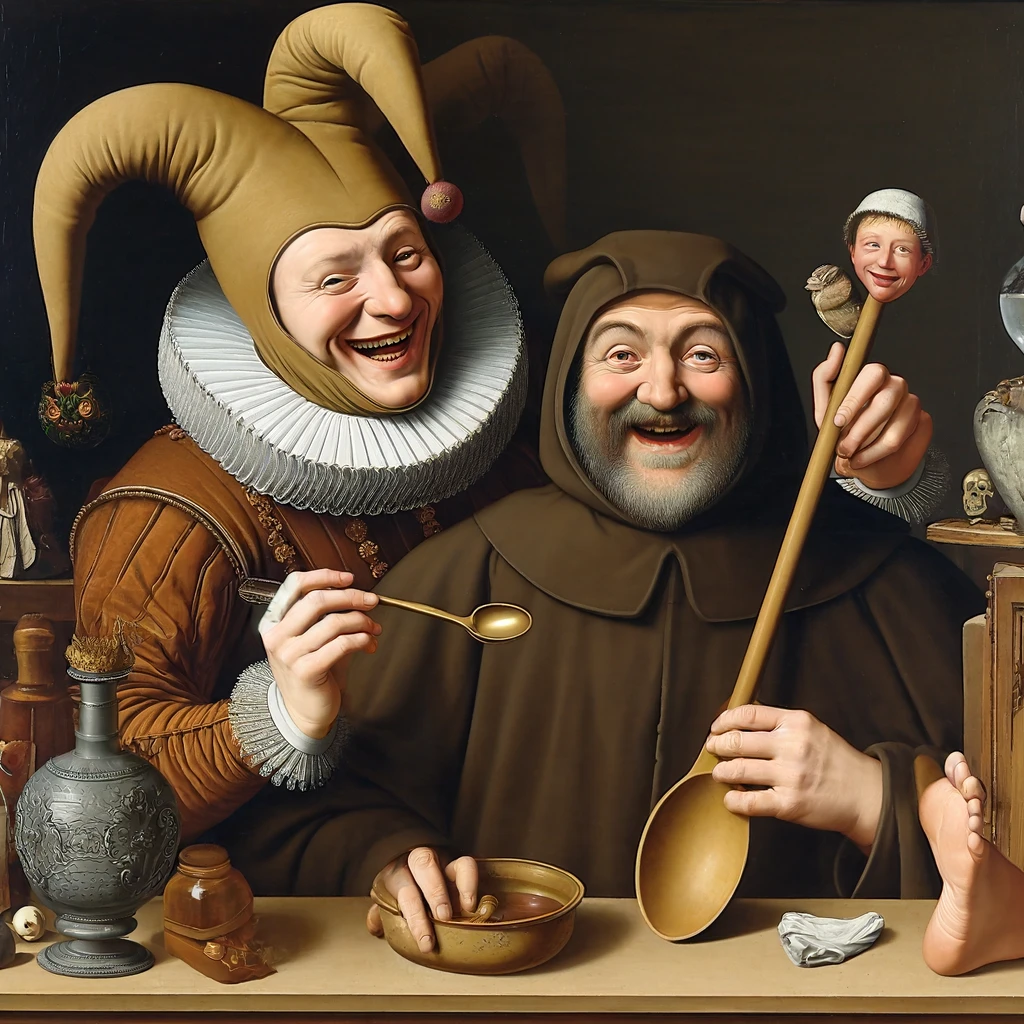
Ethics 3P34 : The greater the emotion with which we conceive a loved object to be affected towards us, the greater will be our complacency.
Our complacency is directly proportional to the emotion we conceive from loved object towards us.
Ethics 3P35 : If anyone conceives, that an object of his love joins itself to another with closer bonds of friendship than he himself has attained to, he will be affected with hatred towards the loved object and with envy towards his rival.
You have a dog, you love your dog, you see your dog loves someone else more than you, you would hate your dog for unfaithfulness and envy the person who your dog loves more.
Dog = Object of love
Jealousy = Hate + Envy toward loved object, arising from combined love and hatred, accompanied by the idea of some rival who is envied.
In the case of love for a woman: for he who thinks, that a woman whom he loves prostitutes herself to another, will feel pain, not only because his own desire is restrained, but also because, being compelled to associate the image of her he loves with the parts of shame and the excreta of another.
So the problem is not only the restraint of desire, but also the association of the image of the loved object with shape of another person.
We must add, that a jealous man is not greeted by his beloved with the same joyful countenance as before, and this also gives him pain as a lover, as I will now show...
Ethics 3P36 : He who remembers a thing, in which he has once taken delight, desires to possess it under the same circumstances as when he first took delight therein.
You remember that you had good time with your car in the west coast, you desire to have the same car in the west coast. You would desire same road and same weather with the same car.
Corollary: A lover will, therefore, feel pain if one of the aforesaid attendant circumstances be missing.
If one of the circumstances is missing, you would feel pain. This comes from expectation/imagination and reality mismatch.
Regret = The absence of the loved object
Ethics 3P37 : Desire arising through pain or pleasure, hatred or love, is greater in proportion as the emotion is greater.
Pain decrease the power of activity and persistance in being. Simultaneously, pain increases the desire to remove the pain.
Pleasure increase the power of activity and persistance in being. Simultaneously, pleasure increases the desire to consist in being.
Also hate and love are forms of pain and pleasure, so they make the same effect.
Strength of desire is directly linked to the underlying emotion of pain or pleasure. As much as we feel pleasure or pain, we would desire to remove or consist in being as much as the emotion is.
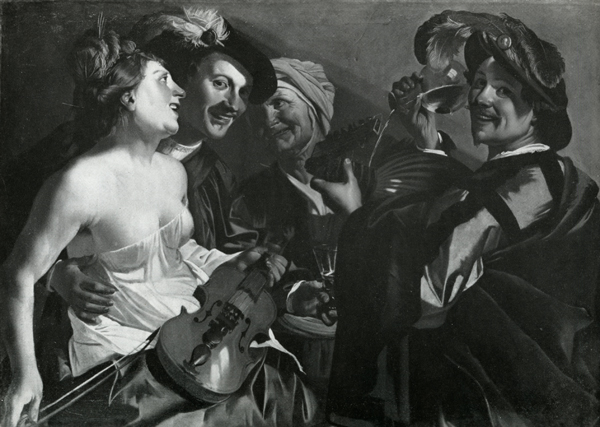
A hate greater than previous love
Ethics 3P38 : If a man has begun to hate an object of his love, so that love is thoroughly destroyed, he will, causes being equal, regard it with more hatred than if he had never loved it, and his hatred will be in proportion to the strength of his former love.
If the loved object is hated, the hate will be stronger than if it was never loved. The reason is in underlying love, which is being limited, this limitation of love is painful and causes hate, which lead to greater hate.
Hate and revenge
Ethics 3P39 : He who hates anyone will endeavour to do him an injury, unless he fears that a greater injury will thereby accrue to himself; on the other hand, he who loves anyone will, by the same law, seek to benefit him.
If you hate someone, you would try to make injury to him, unless you fear that a greater injury will come to you(revenge). Contrary, if you love someone, you would try to benefit them.
Also the strength of desire to make injury is directly linked to the underlying hate.
Hate brings hate
Ethics 3P40 : He, who conceives himself to be hated by another, and believes that he has given him no cause for hatred, will hate that other in return.
The natural reaction to hate is to hate back. Specifically, if you think that you are hated without a cause, you would hate back. Underlying reason is that external hate toward us is painful itself and the cause of pain will be hated(the person who hates us).
If you would believe that there is a cause for hate, hate feeling turns into shame.
Corollary.1: He who conceives, that one whom he loves hates him, will be a prey to conflicting hatred and love. For, in so far as he conceives that he is an object of hatred, he is determined to hate his enemy in return. But, by the hypothesis, he nevertheless loves him: wherefore he will be a prey to conflicting hatred and love.
If the loved object hate us, we get into a conflicting state of love and hate.
Corollary.2: If a man conceives that one, whom he has hitherto regarded without emotion, has done him any injury from motives of hatred, he will forthwith seek to repay the injury in kind.
If someone which we have no emotion to, do injury to us, we would immediately seek to repay the injury in the same kind.
- Anger = Desire to injure someone who made us hate.
- Revenge = Desire to make injury as the same kind received.
Love brings love
Ethics 3P41 : If anyone conceives that he is loved by another, and believes that he has given no cause for such love, he will love that other in return.
In the case of giving a cause for love, love feeling turns into pride.
- Pride = Being the cause of love in others constantly till Honour being to a pride and part of us.
Gratitude or thankfulness = Love toward someone who loves us, and consequently benefiting them.
Corollary: He who imagines that he is loved by one whom he hates, will be a prey to conflicting hatred and love.
If we receive love from a hated object, we get into a conflicting state of love and hate. In this case, if hate is greater than love, yet we try to injure who he loves us, this is called cruelty, specifically if the victim has given no cause for hate.
- Cruelty = Desire to injure someone who loves us.
Pain by ungratefulness of given benefit
Ethics 3P42 : He who has conferred a benefit on anyone from motives of love or honour will feel pain, if he sees that the benefit is received without gratitude.
If benefit is received without gratitude, the pain will be felt. It's because we strive to know ourselves cause of pleasure in others, to feel Honour and pride, and when it's not recognized, it causes pain.
Reciprocal hate brings hate, reciprocal love brings love
Ethics 3P43 : Hatred is increased by being reciprocated, and can on the other hand be destroyed by love.
We hate others as much as they hate us. And we love others as much as they love us, which can destroy hate since it's contrary.
Love can destroy hate, as far as love is greater than hate. Also, contrary, hate can destroy love, as far as hate is greater than love.
The greater love after hate
Ethics 3P44 : Hatred which is completely vanquished by love passes into love: and love is thereupon greater than if hatred had not preceded it.
The love after hate vanquished by love is greater than if hate had not preceded it. Contrary, we said before, that: hate can destroy love, and the hate after love is greater than if love had not preceded it.
How? the pleasure of love from hated person enhance overcoming the pain of hate. No one desire pain or hatred to enjoy greater pleasure after. No one wish to be harmed just to experience greater pleasure after recovery, because everyone desire to consist in being and avoid pain.
Hate toward men who hate our loved object
Ethics 3P45 : If a man conceives, that anyone similar to himself hates anything also similar to himself, which he loves, he will hate that person.
- You have a dog, you love your dog, someone similar to you hates dogs, you would hate them.
- [(+) (S)] * (C-) = [(O) (-)]
Why? Because loved object will hate who ever hates it, and you would also hate who ever hates your loved object.
Love and hate toward a class or nation
Ethics 3P46 : If a man has been affected pleasurably or painfully by anyone, of a class or nation different from his own, and if the pleasure or pain has been accompanied by the idea of the said stranger as cause, under the general category of the class or nation: the man will feel love or hatred, not only to the individual stranger, but also to the whole class or nation whereto he belongs.
If someone from a different class/nation/group has affected you pleasurably or painfully, you would turn the feeling back to the whole class/nation/group.
This is coming from our nature to group ourselves by similarities and differences, and to reflect the feelings of individuals to the whole group. We can always see that different groups have pride in themselves and hate toward contrary group.
Complex mix of joy and pain
Ethics 3P47 : Joy arising from the fact, that anything we hate is destroyed, or suffers other injury, is never unaccompanied by a certain pain in us.
If you hate something and see it destroyed, you would feel joy. But this joy is not alone, since we have empathy and sympathy with the similar object, we would feel pain as well.
Destruction of love or hate by changing conditions
Ethics 3P48 : Love or hatred towards, for instance, Peter is destroyed, if the pleasure involved in the former, or the pain involved in the latter emotion, be associated with the idea of another cause: and will be diminished in proportion as we conceive Peter not to have been the sole cause of either emotion.
We hate or love someone as far as we think that person is the sole cause of the emotion. Like they have done something to us. If we realize they have not been the sole cause of the emotion, and there was solely or completely other causes, the emotion will be destroyed or diminished.
Let's say you blame Peter for a cause, when you realize he was not the sole cause, the blame towards him will be destroyed or diminished. Contrariwise, if you love Peter for a cause, when you realize he was not the sole cause, the love towards him will be destroyed or diminished.
What kind of things we can love or hate?
Ethics 3P49 : Love or hatred towards a thing, which we conceive to be free, must, other conditions being similar, be greater than if it were felt towards a thing acting by necessity.
We cannot love or hate something that is not free. For example, we know that a wild animal is not free, it's acting by necessity. We don't hate wild animals, we don't love them either, we know it's necessary for them to act based on there nature. A wild animal's nature is to attack when felt threatened, it's not free to act differently.
The same goes for matter, no one blames the rock that fell on their head, because it's acting by necessity, it's not free to act differently, we know that rock doesn't make a decision based on it's free-will to fall on our head.
Now, the very same goes for humans, if you know that someone is not free to act differently, you would not hate or love them, you would not blame them either, because you know, that humans, just like wild animals or anything else under the nature, follows the necessity of driven nature.
Everything, as far as it's conceived under nature, not free, but act by necessity.
Note: Hence it follows, that men, thinking themselves to be free, feel more love or hatred towards one another than towards anything else
Omens and Their Impact on Emotions
Ethics 3P50 : Anything whatever can be, accidentally, a cause of hope or fear.
So far, we know that hope cannot exist without fear. None of them can exist without the other. Fear without hope is dissipation of the mind, and hope without fear is madness.
The cause of fear is pain and the cause of hope is pleasure.
We try to estimate things based on the hope we look in them, this process will lead to superstition. Superstition comes from fear of unknown, and the hope of the unknown.
- Omen = Things which are accidentally the causes of hope or fear are called good or evil omen.
Different perception of the same object by different people
Ethics 3P51 : Different men may be differently affected by the same object, and the same man may be differently affected at different times by the same object.
The same object can cause different emotions in different or same men at different times. What someone loves, another hate. What someone hates, another loves. What someone loves today, they might hate tomorrow, and vice versa.
We might be brave at the same place we were coward before, or vice versa. Everyone judges things based on their own emotions of good, bad, better or worst.
Some example of inconstancy of human judgments:
I shall call a man intrepid, if he despises an evil which I am fear of;
If someone despises an evil which you are fear of, you would call him intrepid.
If he's desired to injure his enemies and benefit his loved ones, and he is not afraid of an evil, which is enough to restrain you, I shall call him daring.
If he's desired to injure his enemies and benefit his loved ones, then he's not intrepid, but daring. It depends on my own point of view of the same thing that he does.
A man will appear timid to me, if he fears an evil which I am accustomed to despise
If he fears an evil which you humiliating, you would call him timid, because you know there is nothing to fear about that evil.
If his desire is restrained by the fear of an evil, which is not sufficient to restrain me, I shall say that he is cowardly
If his restricted by an evil that you humiliate, you would call him cowardly.
And in like manner will everyone pass judgment.
Uniqueness and solving in Wonder
Ethics 3P52 : An object which we have formerly seen in conjunction with others, and which we do not conceive to have any property that is not common to many, will not be regarded by us for so long, as an object which we conceive to have some property peculiar to itself.
First we need to take a glance to memory, we know that we remember things with each other. Now if we see an object which doesn't have any unique property, like red apple, we would not remember it for so long, because we always see red apples. Now if we see a golden apple, we would remember it for long since we have never seen a golden apple.
Just like the below unicorn, we see horses all the time, we don't remember any particular horse, but if we see a unicorn, we would remember it as a different horse with a horn.
As far as we imagine unicorn in mind and solely unicorn, it's called Wonder.
Now if this imagination referred with fear, it's called Consternation.
If wonder be toward something we admire, it's called Veneration.
If we wonder at someone's anger, envy, or jealousy, it's called Horror.
If we love a man which we wonder at, our love + Wonder or Veneration = Devotion, the condition is that the love has to be greater than the wonder or veneration.
On the other hand, Contempt is the opposite of Wonder, it happens at times when we deny the qualities that cause Wonder. In this case we start to think of unique things that are not in the object instead of the things that are. We said that Devotion is the result of Love + Wonder, Now Derision is the result of Contempt of a thing we hate or fear. And the Contempt toward something we know folly. So if something is dumb/folly, we do not Wonder at, but we Contempt, we would Scorn it.
- Wonder = When the mind solely focused on a unique object.
- Consternation = Wonder at something fearful.
- Veneration = Wonder at something greater than us.
- Horror = Wonder at negative emotions of others like anger or envy.
Devotion = Love combined with Wonder or Veneration.
- Contempt = Opposite of Wonder, happens by denying Wondering qualities.
- Derision = Contempt for what we hate or fear.
- Scorn = Contempt for folly.

Ethics 3P53 : When the mind regards itself and its own power of activity, it feels pleasure: and that pleasure is greater in proportion to the distinctness wherewith it conceives itself and its own power of activity.
You imagine yourself powerful, you imagine that others admire you for greatness, which leads to pleasure. even though, the greatness might only exist in mind caused by internal imaginations, and not in reality. This proposition states that imaginations can effect as reality.
Corollary: This pleasure is fostered more and more, in proportion as a man conceives himself to be praised by others. For the more he conceives himself as praised by others, the more he will imagine them to be affected with pleasure, accompanied by the idea of himself; thus he is himself affected with greater pleasure, accompanied by the idea of himself.
As much as we conceive ourselves great and cause of pleasure in others, this feeling gets stronger in a compound way since the pleasure of greatness does not have a limit. So as a result, imaginations are the first kind of knowledge which is falsy and wrong, it makes us detach from reality based on desires.
Ethics 3P54 : The mind endeavours to conceive only such things as assert its power of activity.
The mind endeavours to remember actions which increase power of activity. If you have done something awesome in the past, mind would like to remember and keep it and assert based on.
Ethics 3P55 : When the mind contemplates its own weakness, it feels pain thereat.
Mind wants to only assert things that confirm it's power of activity. But when mind checks it's own weakness, which is contrary to it's power of activity, it feels pain.
Corollary: This pain is more and more fostered, if a man conceives that he is blamed by others.
Pain grows by us thinking of our own weakness and jealousy to others who does not have such a pain.
Narration of Exploits: People love talking about there achievements and power, which can lead to envy and bothering others. This envy naturally comes from arising joy in others by there own power of activity, in a way that it causes pain in others in comparison to self.
Comparison: The greater our uniqueness which brings us power of action be comparing to others, will remove the pain of Humility and denigration to others.
- Humility = Pain accompanied by the idea of self weakness.
- Self-Love = Pleasure accompanied by the idea of self virtues or power.
This self-humility and self-love are the falsy drives of neuroses which Spinoza is pointing out here, it's surprising how he was seeing it 150 years before Karen Horney, I will talk about this subject in details later. He continues to explain the root of this issue and how it shapes.
This comes from the family environment and childhood, where parents used to incite there children to virtue by injecting the feeling of honour and envy. In a way that they would show love to good acts and compare kid to others at situations when they want to blame the child.
Corollary: No one envies the virtue of anyone who is not his equal.
A man will not desire any power of activity or virtue (which is the same thing) to be attributed to him, that is appropriate to another's nature and foreign to his own.
Note: we venerate a man, through wonder at his prudence, fortitude, &c., we do so, because we conceive those qualities to be peculiar to him, and not as common to our nature; we, therefore, no more envy their possessor, than we envy trees for being tall, or lions for being courageous.
When we wonder at something's courage or virtues, we do so by assuming these qualities unique to them, and not human nature. So we don't envy tree for being tall or lion for it's courage.
An emotion for each thing
Ethics 3P56 : There are as many kinds of pleasure, of pain, of desire, and of every emotion compounded of these, such as vacillations of spirit, or derived from these, such as love, hatred, hope, fear, &c., as there are kinds of objects whereby we are affected.
Every specific emotion is a mix of pleasure, pain and desire. Each emotion is associated with a object, each object affect us in a different way than others. We should also mention that we can accidentally love or hate anything.
Emotion depends on essence of the thing
Ethics 3P57 : Any emotion of a given individual differs from the emotion of another individual, only in so far as the essence of the one individual differs from the essence of the other.
Each of us have a different experience of reality and emotion we get from it. We only have different emotions with each other, if the essence among is different from each other. Because the desire of each man is related to it's nature, and the nature of each individual is different. This concept applies to all living beings including animals, the joy that a hours feels in procreation is equine(specific to it's nature) while human experience something different from the same act in nature. It continues that the pleasure a philosopher takes is differ with what dankness feels.
- Irrational = Emotion of animals
Ethics 3P58 : Besides pleasure and desire, which are passivities or passions, there are other emotions derived from pleasure and desire, which are attributable to us in so far as we are active.
An emotion of pleasure or desire is passive or passion, but some emotions driven from these which are active.
Proof came from where we think of the self's power and by that conceiving adequate ideas of self, which are true. Now the mind is active filled by the pleasure emotion, and has adequate ideas. Example: when a scientist make a new discovery, he feels pleasure accompanied by a true idea of his discovery.
So here we see that all emotions are passive, but increase or decrease power of activity, but the activity of mind relies on the adequate ideas.
Ethics 3P59 : Among all the emotions attributable to the mind as active, there are none which cannot be referred to pleasure or desire.
There is no emotion which not to be pleasure or pain and regard as active. All active emotions are attributable to pleasure or desire, pain on the other hand, decrease the power of activity or understanding.
Last note:
From all above we saw how emotions from the right mix of pain, pleasure and desire will result to a specific emotion, this dynamic mix can go in all possible computations. Also we know that these causes in which leads to emotions, can be internal or external, we can think of a memory and an emotion arise and do certain acts upon it, or it can be an external influence by seeing a object. In case in which that a external cause leads to a emotion in us to act upon, we call this passive, passively and emotionally doing a act by desire and nature will result going by the mercy of fortune. He talks that we all are like waves of see driven by this dynamic mixing system of emotion. Also bodily disposition will effect emotion, he makes example of the time that we love to eat food, but after eating enough, the emotion of love changes with repulsion.
Conclusions
From all we conceived above, there is one true point, which is the matter of fact that emotions are not mystical, but actually mechanical, which is a hard proof of how we are part of the nature and following the general rules of it.
The 3 primary emotions fundamental to human existence determining our behaviors and perception.
Desire is the main drive of action, mostly masked as free-will, we call what we desire as free-will, unknown of true causes that lead to that way. Also, this desire is fundamentally linked to our instinctual needs, in a way that we desire what can help us stay in existence more(conatus).
- Desire (toward +)
- fundamentally linked to our instinctual needs
- If the desire would not be by conciseness, it's called appetite, like hunger.
- Pleasure (+)
- Indicator of transition to a higher perfection, or indicating a increase in power of activity.
- It increases the activity of mind, or general power of activity
- Pain (-)
- Indicator of transition to a lesser perfection, or indicating a decrease in power of activity.
- It decrease the activity of mind, or general power of activity of body and mind.
Emotion or change in state
For Spinoza, emotion is a change in the state of our physical organism to greater or lesser state of vitality. This emotion can be an idea, or mental representation.
Active vs passive
If we be the adequate and sole cause of a emotion in ourselves, we call it active emotion. If we would not be the cause of emotion, but rather emotion has external sources, it's regarded as passive, because now we are not the cause of emotion anymore, but we are part of the causal chain of something in which affects us with emotion, and we are determined to experience them by outside forces.
Perfection
Perfection is the indicator of emotion on the scale of in which between pleasure and pain, just like numbers from infinite negative to infinite positive, our state of activity can be anywhere on the scale, or change and disposition itself.
Connection between Mind and Body
Mind and body are one and the same thing
Each of them effect on the other.
Resemblance
Mind has the ability to resemblance things to each other. One person can remind you of another by resemblance of confused memories, and make you have the same emotions toward.
- Resemblance = Similarity through pattern recognition.
Accidental emotions
Anything can, accidentally, be the cause of pleasure, pain, or desire.
So we have to doubt our emotions and validate with second kind of knowledge(logic), they can mix and confuse easily by memory.
Imaginations and image formation
What ever we imagine, we see in front of self. Which means that it feels real, it would be more impactful if the imagination be in the past or future. Imagination is the first kind of knowledge, it has falsy nature and it makes us distance reality.
Objects
We can have feelings toward objects, and not only of self. By this very mean, it follows that specific emotions and there own specific equations exist. Which can also be conceived through imaginations, for example if you imagine your loved objected destroy, you would feel pain, which is equal to it's actual event in reality.
Emotion, the product
Emotions are natural product of us, in which that is related to power of activity. Emotions are reflecting the nature of survival and evolution through years.
Nature of emotion
How we experience the same emotion depends on our nature, what a hours might experience from love is differ than us, it follows that anything else, as far as it has a different essence or nature will differ from one to another.
Complex yet determined
Our emotions are reflecting a chaotic dynamic complex picture, but complexity is not a reason to define it as magical or contingent, yet there is logic being which we saw how it works. Also we must now have a good picture of how mechanical and deterministic emotions are.
Pleasure at the pain of others
It is clearly visible through envy that we can enjoy someone else's pain, and regard it as good. Or contrariwise, others enjoy our pain. The nature of man is based on envy and sympathy.
Thinking of others
Logs of our actions are combined by us as the cause of emotion in others, this shows the social life style of this nature. This thinking of others thoughts of self can be a unhealthy drive of action. It also shows that how people would see the reflection of themselves in others ideas, and how difficult would it be without this drive.
Desire is the essence of man
Any desire is reflecting to be the cause of pleasure for self, which increase the power of activity by that very essence of man. For example, animals also have desires like eating and striving for something, which just like us, it shows a activity which brings pleasure as the self would be the cause of it.
Grouping
It shows from the nation proposition in which that it's the nature of us to group self into all the onces fitting into the picture aligned with our nature and values, and regarding the group as the object of love and pride and knowing it as a property of self, and start fighting with contrary groups driven by emotion.
